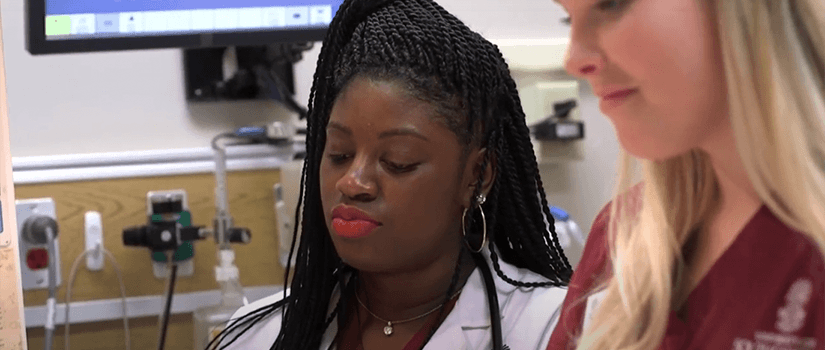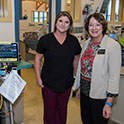USC Nursing's PhD program is designed to be financially and logistically accessible.
As a PhD student, you will receive full funding of tuition for the first 36 credit
hours of pre-dissertation coursework. The executive-style program format offers you
flexibility to work while you advance your studies.
Our small class sizes create opportunities to form deep relationships with faculty
mentors and program peers, accelerating your growth as a nursing researcher. Working
closely with advisors and faculty who are actively engaged in funded research, you’ll
develop an individualized program of study that allows you to pursue your passion,
generate your own grant-funded projects and make an impact in health care.
By pursuing your PhD at USC, a comprehensive R1 institution, you’ll have access to collaborate with the College of Nursing’s clinical and research
faculty, as well experts across campus, including faculty at the College of Engineering,
Arnold School of Public Health and other Health Sciences.
In addition, you may also earn a Certificate of Graduate Study (post-master's certificate)
during your PhD studies, further advancing your career and marketability.
The PhD curriculum is designed for busy nursing professionals. Choose a full-time or part-time program
that best fits your career and lifestyle. Executive-style, two-day monthly course
delivery and online learning activities add flexibility to pursue a doctoral degree.
You will receive full funding of tuition for the first 36 credit hours of pre-dissertation
coursework. The College of Nursing also offers scholarships, assistantships and other
financial aid options for PhD students.
PhD program costs depend on several factors. For estimated costs, click here.
The Office of Financial Aid provides the full breakdown of the estimated cost to attend. For additional tuition and fee information, visit the Bursar's Office Tuition and Fees website.



